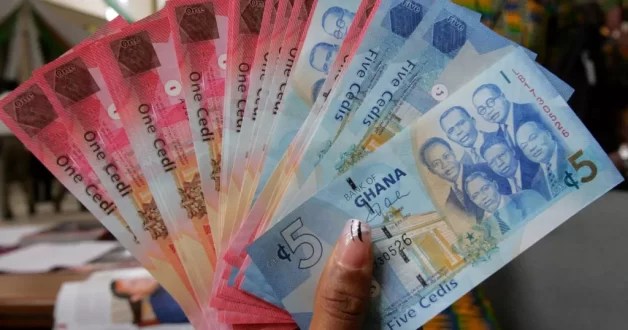A Diaspora Solution to the Cedi Crisisô

The Ghanaian cedi has seen turbulent days. In November 2022, it sank to an all-time low of GHôÂ17.62 to the dollar, earning the unwanted title of the worldãs worst performing currency at the time (Bloomberg, Bank of Ghana). The sharp depreciation was fueled by investor exit, high debt levels, and limited foreign inflows.ô
Fast forward to early January 2025, the cedi opened at about GHôÂ14.71 per dollar on the interbank market. The currencyãs strongest performance came in mid-2025 when it rallied on the back of improved reserves, stronger gold export earnings, and fiscal discipline outlined in the midyear budget (Ministry of Finance, 2025). The Cedi appreciated by 42.6 percent against the US dollar, 30.3% against the British pound, and 25.6% against the euro, a level of appreciation unprecedented in the history of our country (2025 Mid-Year Fiscal Policy Review).ô
Some credit is due. The previous government built buffers through Eurobond inflows and cocoa syndications. The current team led by Finance Minister Dr. Cassiel Ato Forson has kept a tight budget, while BoG Governor Dr. Johnson Pandit Asiama and the Monetary Policy Committee held the line with firm monetary policy.ô
Yet despite these efforts, the cedi is wobbling again. The local currency has once again come under pressure. As of 5th September 2025, the Bank of Ghanaãs interbank rate stood at GHôÂ11.96 per US dollar, reflecting fresh depreciation concerns. The reason is simple: capital flight. Multinational companies continue to expatriate huge profits abroad, creating unrelenting demand for dollars that the local market cannot sustain.ô
The Bank of Ghana has tried to stem the tide by directing banks not to sell dollars beyond their deposits. It is a good step but only a temporary plaster. Without new forex inflows, the pressure will persist.ô
Here is where the solution lies: the Ghanaian diaspora. According to the World Bank, remittances to Ghana reached USD 4.7 billion in 2022, and have stayed above USD 4 billion annually. These
funds are lifelines, but mostly go into consumption from paying school fees and funerals to building family houses and letãs admit it, a chunk of these remittances even goes to support girlfriendsã upkeep. Necessary, yes. Productive? Not really.ô
Imagine if just a fraction of this money was structured into investment vehicles. With the right framework, groups of about 20 Ghanaians abroad could pool funds and channel them into agribusiness, renewable energy, or even mining concessions. After all, foreign companies are already mining and repatriating the profits. Why canãt Ghanaians?ô
Other African countries are already showing the way. Nigeria raised hundreds of millions through diaspora bonds. Ethiopia and Rwanda tapped into structured diaspora funds to finance infrastructure and development. Ghana has the people and the inflows what it lacks is a clear structural framework to make diaspora investment seamless and secure.ô
If the Ministry of Finance and the Bank of Ghana work together on such a model, remittances could shift from mere consumption to a powerful stabilising force. It would ease pressure on the cedi, create jobs, and expand industries.ô
If the government is able to channel diaspora inflows into productive investments, the cedi will not only stabilise but also fuel long-term growth. What is now a weakness could become our greatest strength. The cedi will keep wobbling until we learn to back our currency with real capital and that capital is sitting abroad in the hands of our own people. It is time to bring it home.ô
Author Bioô
Joseph Aguyire Abonenga is an emerging economist and radio presenter with a focus on exchange rate stability, diaspora investment, and pragmatic economic reforms.
By: Joseph Aguyire Abonengaô





